Mauricio A Alvarez
Adjoint-aided inference of Gaussian process driven differential equations
Feb 09, 2022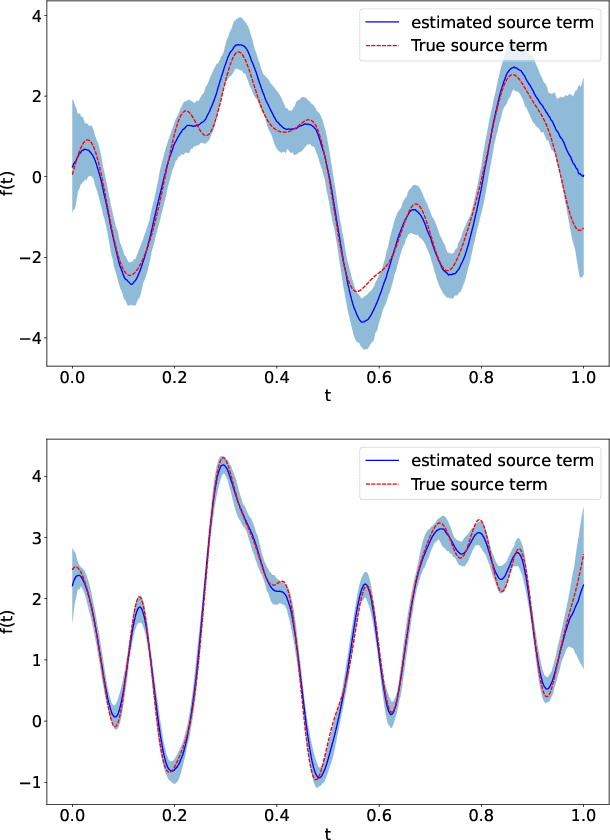
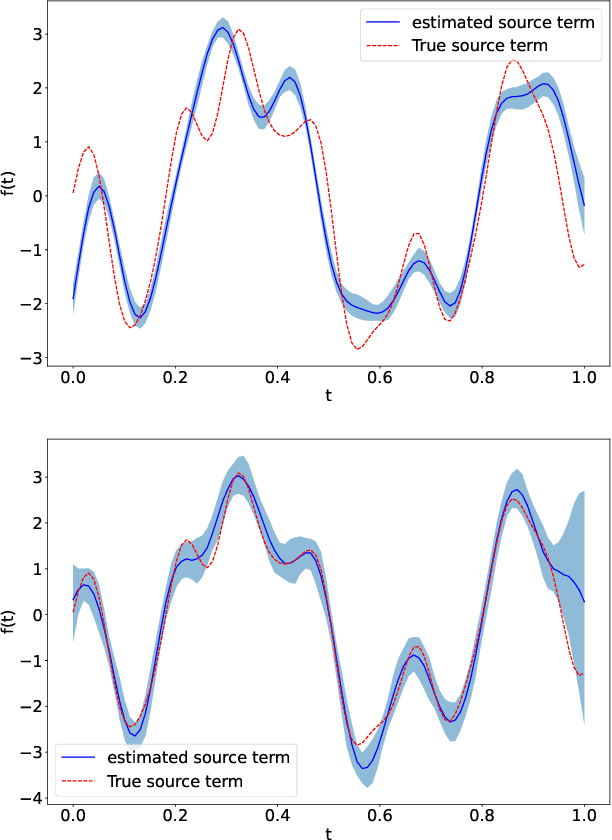
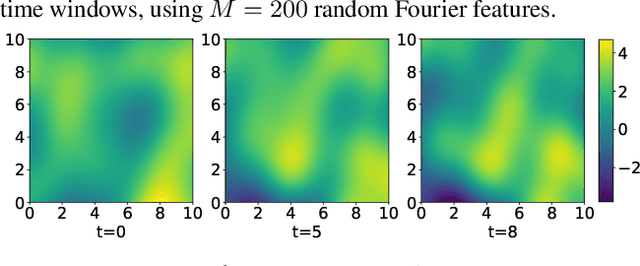
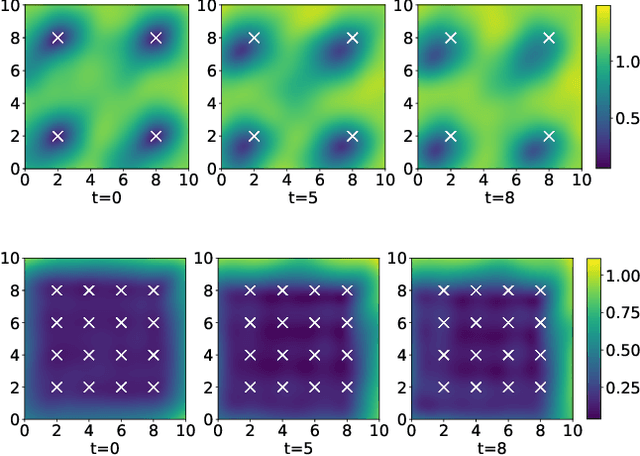
Abstract:Linear systems occur throughout engineering and the sciences, most notably as differential equations. In many cases the forcing function for the system is unknown, and interest lies in using noisy observations of the system to infer the forcing, as well as other unknown parameters. In differential equations, the forcing function is an unknown function of the independent variables (typically time and space), and can be modelled as a Gaussian process (GP). In this paper we show how the adjoint of a linear system can be used to efficiently infer forcing functions modelled as GPs, after using a truncated basis expansion of the GP kernel. We show how exact conjugate Bayesian inference for the truncated GP can be achieved, in many cases with substantially lower computation than would be required using MCMC methods. We demonstrate the approach on systems of both ordinary and partial differential equations, and by testing on synthetic data, show that the basis expansion approach approximates well the true forcing with a modest number of basis vectors. Finally, we show how to infer point estimates for the non-linear model parameters, such as the kernel length-scales, using Bayesian optimisation.
Adversarial Vulnerability Bounds for Gaussian Process Classification
Sep 19, 2019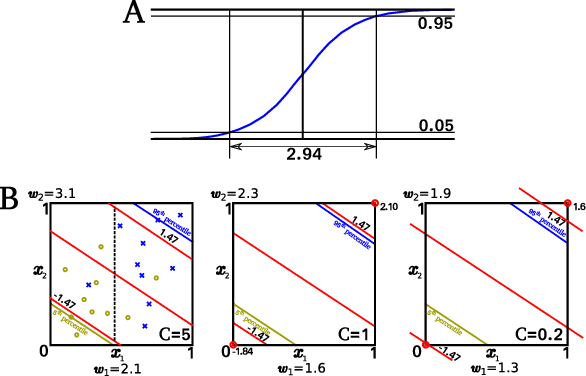

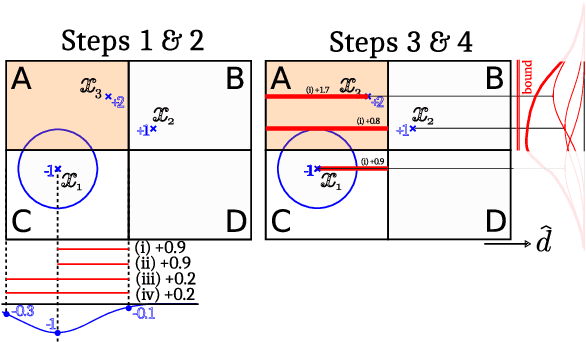

Abstract:Machine learning (ML) classification is increasingly used in safety-critical systems. Protecting ML classifiers from adversarial examples is crucial. We propose that the main threat is that of an attacker perturbing a confidently classified input to produce a confident misclassification. To protect against this we devise an adversarial bound (AB) for a Gaussian process classifier, that holds for the entire input domain, bounding the potential for any future adversarial method to cause such misclassification. This is a formal guarantee of robustness, not just an empirically derived result. We investigate how to configure the classifier to maximise the bound, including the use of a sparse approximation, leading to the method producing a practical, useful and provably robust classifier, which we test using a variety of datasets.
Multi-task Learning for Aggregated Data using Gaussian Processes
Jun 22, 2019



Abstract:Aggregated data is commonplace in areas such as epidemiology and demography. For example, census data for a population is usually given as averages defined over time periods or spatial resolutions (city, region or countries). In this paper, we present a novel multi-task learning model based on Gaussian processes for joint learning of variables that have been aggregated at different input scales. Our model represents each task as the linear combination of the realizations of latent processes that are integrated at a different scale per task. We are then able to compute the cross-covariance between the different tasks either analytically or numerically. We also allow each task to have a potentially different likelihood model and provide a variational lower bound that can be optimised in a stochastic fashion making our model suitable for larger datasets. We show examples of the model in a synthetic example, a fertility dataset and an air pollution prediction application.
Gaussian Process Regression for Binned Data
Sep 06, 2018



Abstract:Many datasets are in the form of tables of binned data. Performing regression on these data usually involves either reading off bin heights, ignoring data from neighbouring bins or interpolating between bins thus over or underestimating the true bin integrals. In this paper we propose an elegant method for performing Gaussian Process (GP) regression given such binned data, allowing one to make probabilistic predictions of the latent function which produced the binned data. We look at several applications. First, for differentially private regression; second, to make predictions over other integrals; and third when the input regions are irregularly shaped collections of polytopes. In summary, our method provides an effective way of analysing binned data such that one can use more information from the histogram representation, and thus reconstruct a more useful and precise density for making predictions.
 Add to Chrome
Add to Chrome Add to Firefox
Add to Firefox Add to Edge
Add to Edge